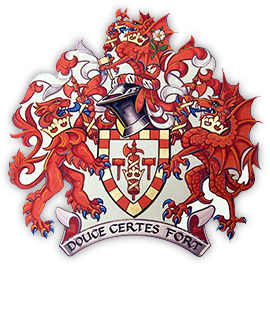Alan J. Smith, Chair of the High Court Enforcement Officers Association (HCEOA), looks at how best practice can help prevent enforcement fraud.
Sadly, fraudsters can and will prey on anyone – in particular those they deem vulnerable – in order to get access to personal information and banking details.
In the most common instances of fraud relating to the enforcement world, scammers will contact individuals or businesses claiming to be a High Court Enforcement Officer (HCEO), Certificated Enforcement Agent (CEA) or HMCTS County Court bailiff chasing debt from a County Court or High Court judgment. While this usually takes the form of a phone call, text message or email, it’s not unheard of for some of the more brash fraudsters to make a visit to a home or premises.
More often than not, this will involve a demand for the immediate transfer of funds into their bank account, asking for banking details to facilitate payment.
Unfortunately, these scams are becoming more sophisticated and can be very convincing, especially if they already have a name and address.
How to detect enforcement fraud
While it is an impossible task for us to wipe out fraud completely, knowing what to expect from an Enforcement Agent and remaining vigilant when contacted is the most effective way to protect yourself and others from fraudulent activity.
HCEOs abide by strict regulations and the HCEOA’s Code of Best Practice, which sets out the levels of professionalism and responsibility that the Association expects from HCEOs and their appointed Enforcement Agents.
Our Code of Best Practice outlines, among other things, how any Enforcement Agent acting on behalf of the HCEO or indeed the HCEO, is expected to behave. These include requirements that HCEOs, or their agents:
- produce relevant identification on request;
- act within the law;
- respect confidentiality;
- do not exaggerate the powers they have;
- are professional, calm, dignified and appropriately dressed;
- are firm but fair; and
- do not discriminate.
Supporting debtors
We also give out advice to debtors and the general public on how they should respond if they receive a call from someone claiming to be a HCEO and feel it is suspicious, covering the points below:
- If you owe a debt, you would have received contact from the creditor (or their collections team), as well as the County and/or High Court before a HCEO will contact you. If you are unaware of the debt in question you can ask the HCEO for copies of the judgment and Writ of Control which they should be able to produce easily. They should clearly be able to quote the court action number, the date of judgment and the court that sealed the writ.
- HCEOs will always carry identification, and they must show it to you if you ask for it. This should show their name and the enforcement business they work for. If you doubt that the contact you’ve received from a HCEO is genuine, you should call the enforcement business they claim to work after looking up the number yourself online and quoting any reference numbers on the paperwork you’ve been given. You can use the ‘find a member’ section of the HCEOA’s website to verify the HCEO in question and find details of the business they work for and contact them directly at https://www.hceoa.org.uk/choosing-a-hceo/find-a-member.
- If you receive a visit from a HCEO or enforcement agent, you should have received seven clear days’ notice (not including Sundays or Bank Holidays) that they intend to visit your property and take control of your goods. If someone claiming to be a HCEO visits you without this notice, then they are going against the Taking Control of Goods Regulations 2013 and the visit is likely not genuine.
- HCEOs may try to call you if they have your contact details to discuss payment, however they will never ask for your bank details over the phone. Most enforcement businesses have invested considerably into customer service tools such as online payment portals which you can access using their respective websites.
- Fraudsters can be well informed and very convincing. If you think someone has contacted you pretending to be an Enforcement Agent you should report this to your local Police Station, and/or the National Fraud and Cyber Crime Reporting Centreon their website, or by calling 0300 123 2040.
It’s an ongoing battle, and one we’re committed to playing our part in fighting alongside the police and fraud prevention experts.





